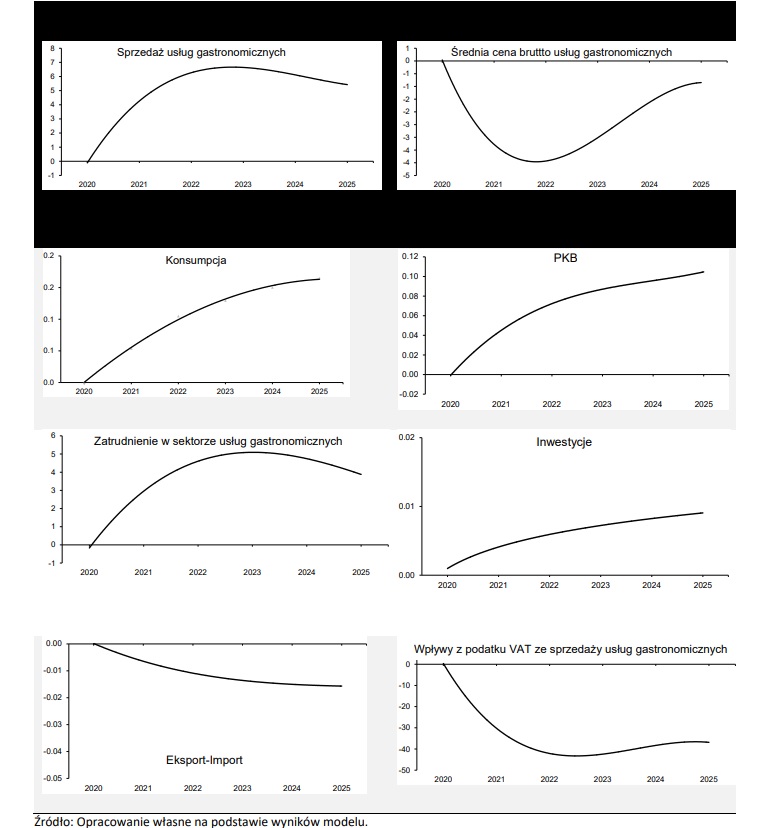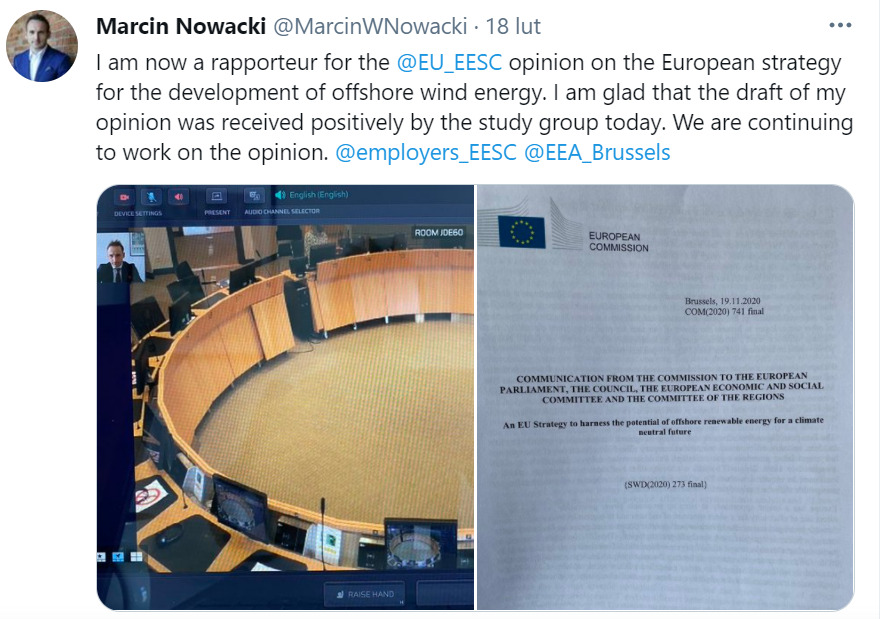Warsaw, 10th May 2021
Survey by the Union of Entrepreneurs and Employers:
Pawnshop market is growing fast
While the number of consumer loans granted by banks and companies specialising in loans is declining, and the government is tightening regulations for the financial industry, the pawnshop sector is booming. According to the first ever report on pawnshops in Poland by the Union of Entrepreneurs and Employers: although pawnshops provide cash loans against a pledge, they are circumventing the provisions of the Consumer Credit Act.
In a survey by the Union of Entrepreneurs and Employers whose completion took several months, its authors evaluated the size of the market in Poland, as well as the motives and opinions of customers making use of pawnshop services, but also found irregularities in the operation of the industry.
These are the key findings of the study:
- There may be as many as 40,000 pawnshops in Poland. For comparison: there are less than 7,000 convenience stores in the popular retail chain whose logo is a green amphibian.
- Almost 4.5 million Poles have made use of pawnshop services, and 1.5 million people used such services during the pandemic.
- As many as 65% of pandemic-times pawnshop customers backed their decision with the fact that their financial situation deteriorated as a result of the lockdown.
- As many as 41% of pawnshop customers used their services, because they had not obtained financing from a bank or loan company.
- Over the last dozen or so months, secured pawn loans have become almost as popular as consumer loans from legal loan companies.
- Pawnshops avoid formal registration and functioning as pawnshops per se and consequently circumvent the Consumer Credit Act, which regulates the relationship between financial institutions and their customers, strengthening the position of consumers. For example, employees of the Union of Entrepreneurs and Employers paid a visit to a pawnshop operating as… a butcher shop.
- In many cases, irregularities were observed, including failure to conform with provisions of the GDPR. Contracts did not contain clauses on the processing of personal data of customers, and the survey also showcases irregularities in the documentation of transactions.
- The valuation of an item accepted in a pawnshop on average amounts to only about 35% of its market value. For example, for a gold neck-chain bought in a store for PLN 490, one can only get PLN 90.
- There are also situations in which customers are not able to read the contract prior to signing it or to withdraw from it later on.
- The lack of clear rules for calculating the cost of a loan is another identified irregularity – it happens that verbally provided information on the cost of a loan is inconsistent with what is ultimately in ink.
- For a pawnshop loan, one has to pay up to 1.5%… a day.
While working on the report “The pawnshop market in Poland – irregularities, consumer protection, systemic risk”, the Union of Entrepreneurs and Employers thoroughly scrutinised this sector. Research showed that pawnshops play an increasingly significant role in the personal finances of millions of Poles.
“A considerable group of consumers have lost access to regulated and supervised sources of obtaining money on the financial market. The reason is simple: these people no longer meet the criteria to be granted cash loans, and as a consequence have been forced to look for alternative methods of obtaining funds. And so, Poles ‘en masse’ went to pawnshops,” says Marcin Nowacki, Vice-President of the Union of Entrepreneurs and Employers.
Pawnshops everywhere
As of today, pawnshops in Polish cities are easily accessible and basically commonplace. One can easily spot them, pay a visit, and make a trade. These factors mean that pawnshops quickly gain customer interest. Over the period of a year, Poles have noticed and increasing number of people in their personal circles who make use of such services, which is also confirmed by research by Maison&Partners commissioned by the Union. Already 14% of Poles have experience trading an item at a pawnshop, and as many as 5% have used this method of obtaining cash since March 2020, that is, the outbreak of the pandemic. In other words, as many as 1.5 million Poles used the services of pawn shops over the last 12 months. Pawn loans have now become almost as popular as those from regulated loan companies.
According to Professor Dominika Maison, the author of the survey on pawnshop customers, Poles have become accustomed to pawnshops, and many have a rather good opinion of them. “Pawnshops are no longer considered merely a last resort or an act of desperation. In time of loss of earnings or high job insecurity, they have become a convenient and quick form of obtaining cash with no strings attached,” explains Professor Maison.
However, research carried out by the Union’s associates show that entities running pawnshop operations circumvent the provisions of the Consumer Credit Act, and thus, among others, the applicable limits of non-interest costs that are applicable to entities wishing to grant financial loans, but also consumer rights such as the obligation to familiarise customers with the contract prior to signing it or to inform them about the actual costs of the loan.
Pawnshop at the butcher’s
What was really difficult for experts to analyse was the number of pawnshops operating in Poland. It took experts and associates of the Union of Entrepreneurs and Employers several months of efforts to determine the size of this market.
“We thoroughly reviewed existing data, public registers, conducted telephone interviews at points conducting pawnshop activities, and finally visited randomly selected locations. The conclusion is that it is practically impossible to estimate the real number of pawnshops in Poland. Their number may range from 3,000, as this is the number of the relevant Polish Classification of Activity entries, up to 40,000,” claims Piotr Palutkiewicz, co-author of the report.
As the authors note in their report, despite the fact that in the Polish Classification of Activity (PKD), there is a special code 64.92.Z on (among other things) granting secured loans, it turns out that entities operating on the pawnshop market avoid registering under this code. Henceforth, pawnshops avoid to formally function as pawnshops. The Union’s experts visited, among others, a pawnshop, which was registered as… a butcher shop.
Pawnshops overlooked by the watchful eye of the legislator
In the report, the Union of Entrepreneurs and Employers draws attention to the legal environment of the financial system in Poland. The Union’s expert wrote that: “The financial market can be considered overregulated. Therefore, it seems that the liberal requirements for entities wishing to enter a given financial services sector can be evaluated favourably. However, what ought to be pursued are equal opportunities and requirements for enterprises operating on the market. Nevertheless, the legislator selects groups of entities on the financial market on a point-by-point basis and additionally regulates them. As a result, banks or loan companies “enjoy” excessive and frequently amended restrictions. While other entities, such as pawnshops, operate in an unhampered legal environment. This translates not only into the lack of equal opportunities for enterprises, but also into unequal consumer protection on the financial market.”
Pawnshop standards
According to research by Maison&Partners commissioned by the Union of Entrepreneurs and Employers, consumers go to pawnshops without any deeper analysis of the costs of t transactions, either planned or concluded. They do not compare the possibilities of obtaining cash available to them. They act spontaneously. This may pose a risk to consumers, as the finding from the research lead to the conclusion that pawnshops do not have uniform rules with regard to informing about the terms and conditions of transactions or uniform standards of customer service.
The Union’s associates visited more than a dozen Polish pawnshops in order to carry out transactions there. The survey showed a number of irregularities and problems from a consumer protection perspective. These include:
- frequent failure to provide contract templates for inspection by the client prior to signing the document,
- significant discrepancies in the valuations of the pledged items,
- no clear cost calculation rules,
- no clauses on the processing of personal data of customers,
- irregularities in documenting transactions,
- verbal and inconsistent information on the real pawn loan costs.
“The standards of customer service and protection differ from the practices applied on the regulated financial market. For example, in some cases, customers were unable to familiarise themselves with contracts or later withdraw from them,” sums up Marcin Nowacki.
Experts of the Union of Entrepreneurs and Employers add in their report: “The issue of spreading a protective umbrella over consumers is raised every single time when works on new regulations of the financial market take place. Therefore, the question arises whether the abandonment of the regulation of the pawnshop market is the intention of the legislator or whether the pawnshop sector is simply invisible from the point of view of law and consumer protection.”
It’s an expensive service
The Union of Entrepreneurs and Employers indicates in the report that pawnshop loans are primarily characterised by very high costs. The percentages fluctuate within a very wide range: from 0.66% to over 1.5% per day. In addition to the amount of interest, the real cost of the transaction is the difference between the market value and the valuation of the items at the pawnshop. Customers declare in the research that they receive on average PLN 224 less than they assumed they would before finalising a transaction. However, they do not negotiate for a higher valuation. As a result, the average valuation of an item handed over to a pawnshop amounts to merely about 35% of its market value.
“Our survey of pawnshop customers showed that money often has a subjective value. It does happen that customers decide to pledge an item, without the intention to buy it out, for 30% of its value, and – surprisingly – they are often satisfied with such a transaction. This is due to the fact that from their subjective point of view, which takes into account more than just financial issues, the transaction was beneficial, because, for example, they did not care about that item. They needed money immediately or did not want to have any obligations in the form of instalments or any additional costs resulting from not paying back on time, including debt collection,” explains Professor Dominika Maison.
Car as collateral
According to the report by the Union of Entrepreneurs and Employers, numerous pawnshops accept high-value items and real estate as collateral, such as a car garage, parking space, refrigerated trailer or agricultural tractor.
“Our associates were able to pawn a luxury passenger car. However, the valuation of the pawnshop was PLN 50,000 lower than in the car vendor’s advertisement,” adds Piotr Palutkiewicz.
The report by the Union of Entrepreneurs and Employers is the first ever study and description of such comprehensive scope dedicated to this market in Poland. The full text of the study is available at: https://tiny.pl/rv9fr.

 ZPP Newsletter
ZPP Newsletter















Recent Comments